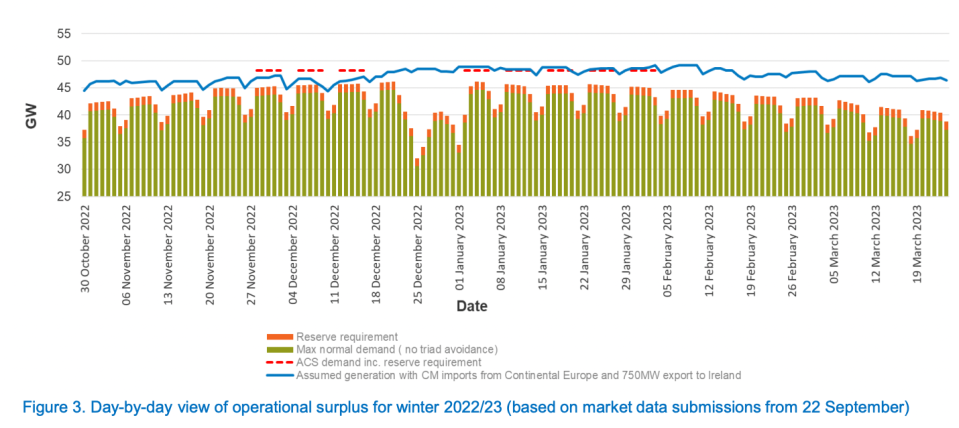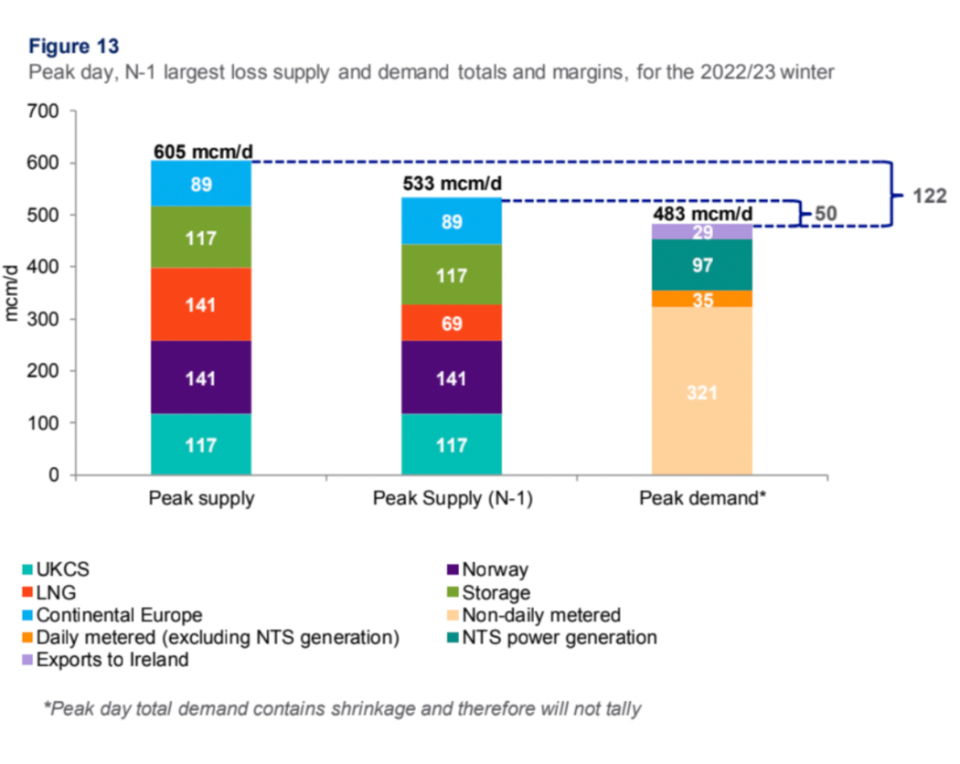National Grid underestimates blackout risk, warns energy experts

Blackouts remain a grave possibility this winter, despite the National Grid’s bullish forecast, warned some of the UK’s leading energy experts.
Kathryn Porter, energy consultant at Watt Logic told City A.M. that the National Grid’s winter outlook is “much too optimistic” and “doesn’t pass the smell test.”
She considered its base case scenario, where coal plants, surplus supplies from Europe, and payments to households to ease energy use keep Britain’s lights on while also shipping energy to the continent this winter to be “highly unlikely.”
The National Grid currently expects a capacity margin of 3.7GW in its base case scenario, but Porter pointed to challenging macro-factors that were already challenging its forecast such as 20-year lows in water levels in Norway, disrupting generation at its dams, and nuclear outages in France.
This suggested supplies from overseas vendors would be harder to secure, especially if Russia completely turned off the taps into Europe.

The winter forecast warned of the possibility of regionally imposed three hour blackouts this winter if there is severe supply disruption and colder than expected winter weather – however, this is still considered an extreme scenario.
Porter argued the Government needed to do more to ease the pressure on the National Grid.
She called for Downing Street to build on its successful negotiations to keep five coal power units running and reopen two of Calon Energy’s gas plants as soon as possible, which were placed in a dormant state two years ago.
In her view, the Government should also lift emissions regulations limiting the use of on-site diesel generation, explore dual-fuelling of combined cycle gas turbines to protect gas supplies in the event of a gas disruption. and negotiate with Norway to secure imports in times of system stress in exchange for exports at other times.
The Government is currently chasing a long-term gas deal with Norwegian energy giant Equinor, as it looks to further bolster supply security, and has lifted a moratorium on fracking.
It is also pushing Centrica to get the Rough storage facility back online, with doubts over its role this winter.

Andy Mayer, energy analyst at the Institute of Economic Affairs (IEA) told City A.M. the winter outlook exposed how “the risk of blackouts and freezeouts” has increased.
He pointed to UK and European efforts to control prices with vast interventions in the market to contain energy bills as part of the problem – as it would water down signals to ease demand.
Mayer said: “High prices encourage energy saving, whereas universal price caps subsidise wasteful uses such as hot tubs and patio heaters, providing the most benefit to the well-off and least energy efficient. The intention is stop anyone having to choose between heating and eating. But the result may be periods when neither is possible, representing the most risk to very people the caps are designed to support.”
Nevertheless, he said people “should not panic”, and that the National Grid still has established emergency response plans that “minimise the chance of serious harm and spread the impact fairly.”
The National Grid remains bullish over supply security this winter and the potential of blackouts in the coming months.
Commenting on its forecast last week, Ian Radley, National Grid’s Director of Gas System Operations, said: “The UK benefits from access to a range of diverse and flexible sources of gas, supported by flexible infrastructure with capability exceeding that required to meet peak demand and mature market arrangements.
“As in any Winter, the UK depends on sources of imported gas meet demand. Given the volatile and unpredictable landscape in Europe, we anticipate LNG will act as the main source of supply flexibility this winter, supplementing UK and Norwegian supplies.”